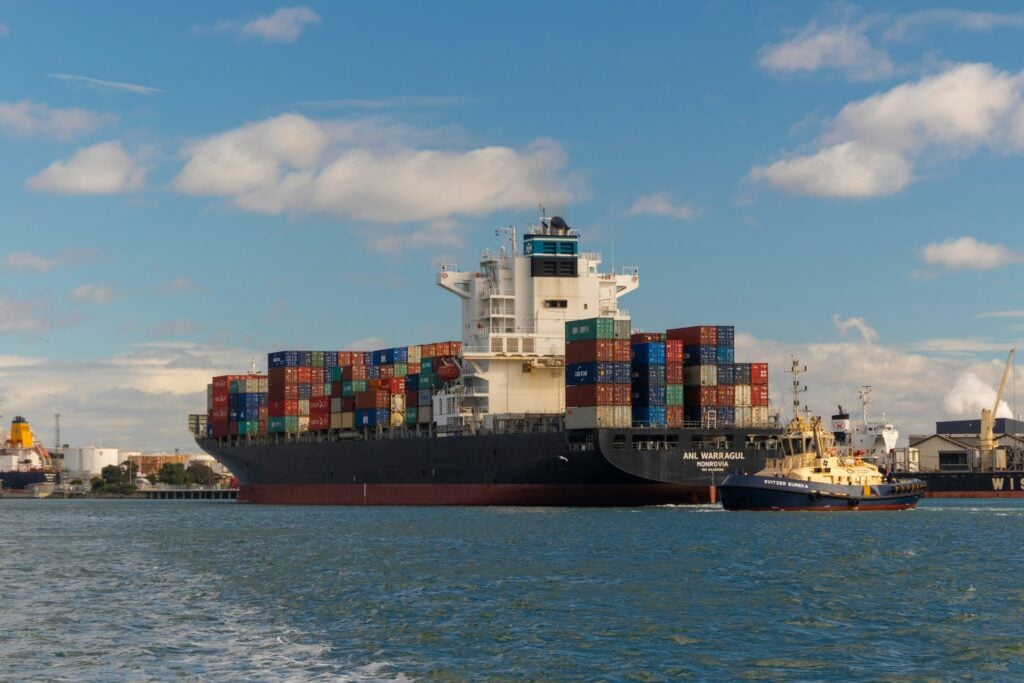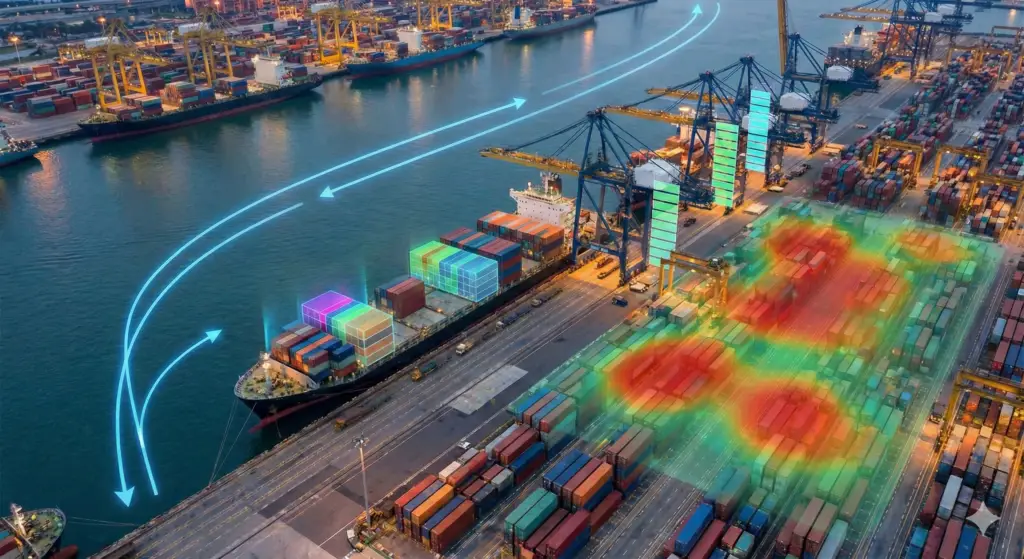The Corporate Sustainability Reporting Directive (CSRD) is a game-changer for logistics businesses across Europe. Introduced by the European Commission in November 2022, it replaces the Financial Reporting Directive (NFRD) with a focus on improving the sustainability and accountability of logistics operations.
For an industry that impacts global supply chains and emissions significantly, this directive sets a clear path for integrating sustainable practices into daily operations.
Logistics companies are at the forefront of implementing the CSRD due to their pivotal role in transportation, warehousing, and supply chain management.
The directive ensures transparency and accountability in environmental, social, and governance (ESG) metrics, aligning logistics operations with the European Green Deal’s goals.
Why Was the CSRD Introduced for Logistics?
The CSRD directly addresses gaps in the previous non-financial reporting framework, particularly for industries like logistics that heavily influence environmental and social outcomes.
Key drivers include:
- Improved Transparency: Standardized frameworks like the European Sustainability Reporting Standards (ESRS) ensure logistics companies provide comparable, high-quality disclosures.
- Stakeholder Accountability: Shippers, consignees, and regulatory bodies require robust ESG data to evaluate logistics operations.
- Greenwashing Prevention: Detailed sustainability metrics reduce the risk of misleading environmental claims in a sector known for significant emissions.
Who Needs to Comply with the CSRD?
Scope and Applicability for Logistics Businesses
The CSRD mandates compliance for approximately 50,000 companies, including logistics providers that meet one or more of the following criteria:
- Employ more than 250 people.
- Generate over €40 million in turnover.
- Hold total assets exceeding €20 million.
For non-EU logistics providers generating over €150 million in the EU market, compliance is also required. This ensures global logistics players align with EU standards.
SMEs and Large Logistics Providers
Both large logistics firms and listed small and medium-sized enterprises (SMEs) must adhere to CSRD requirements. SMEs, however, have a longer timeline to adapt to these regulations, allowing them to gradually implement robust sustainability reporting systems.
What Does the CSRD Require Logistics Companies to Report?
Double Materiality in Reporting for Logistics
Logistics companies must evaluate sustainability impacts using the CSRD’s double materiality framework:
- Financial Materiality: How sustainability challenges, such as rising fuel costs or regulatory emissions caps, affect a company’s financial and operational performance.
- Impact Materiality: The environmental and social impact of logistics operations, such as CO2 emissions from freight or the working conditions within warehouses.
This dual focus ensures that logistics companies comprehensively assess their role in global sustainability challenges and opportunities.
Standardized Reporting Aligned with ESRS
All reports must adhere to the European Sustainability Reporting Standards (ESRS). For logistics companies, this includes:
- Tracking CO2 emissions across Scope 1 (direct emissions), Scope 2 (indirect energy emissions), and Scope 3 (supply chain emissions).
- Reporting on energy efficiency measures in fleets and facilities.
- Detailing waste management practices and reduction initiatives.
The standardized format facilitates comparability across the logistics industry and supports alignment with EU taxonomy objectives.
Third-Party Assurance for Logistics Data
The CSRD mandates third-party assurance for reported data. For logistics businesses, this means ensuring the accuracy of emissions data, energy consumption figures, and sustainability metrics.
The European Financial Reporting Advisory Group (EFRAG) oversees the development of these assurance standards, ensuring consistency and reliability across the industry.
Key Disclosure Areas for Logistics Companies
Logistics companies must focus on specific disclosure areas outlined by the CSRD to ensure accountability and transparency in their operations. Addressing these areas is essential to mitigating environmental and social impacts while fostering stakeholder confidence in sustainable practices. These include:
- Environmental Protection Efforts: This includes initiatives such as transitioning to electric vehicles, optimizing shipping routes to reduce emissions, and implementing energy-efficient technologies in warehouses.
- Social Responsibility: Logistics companies must prioritize the fair treatment of employees, including drivers, warehouse staff, and administrative teams, ensuring safe and equitable working conditions.
- Anti-Corruption Measures: Implementing strict governance policies to combat bribery and corruption, particularly in global trade networks, is essential to maintaining ethical standards.
- Board Diversity and Governance Practices: Companies are encouraged to promote diversity within leadership teams, ensuring representation across age, gender, and professional backgrounds while tying governance strategies to sustainability objectives.
How the CSRD Impacts Logistics and Supply Chains
Accountability for Scope 3 Emissions
Logistics businesses are uniquely impacted by the CSRD’s emphasis on Scope 3 emissions. These indirect emissions, including those from third-party carriers or suppliers, represent a significant challenge for logistics companies. Tracking and reporting Scope 3 emissions is essential for demonstrating comprehensive ESG accountability.
Enhancing Transparency with Supply Chain Partners
Meeting CSRD reporting requirements allows logistics providers to foster stronger relationships with supply chain stakeholders. Transparent reporting builds trust and positions logistics companies as reliable partners in sustainability.
Turning Compliance into a Competitive Advantage
CSRD compliance isn’t just a regulatory hurdle; it’s an opportunity to lead in sustainability. By adopting innovative practices and aligning operations with ESG goals, logistics businesses can:
- Enhance brand reputation.
- Attract sustainability-focused clients.
- Differentiate themselves in a competitive market.
Challenges and Opportunities of the CSRD for Logistics
Key Challenges for Logistics Companies
The logistics sector faces several challenges in complying with the CSRD, including:
- Collecting accurate data for Scope 3 emissions across diverse supply chain networks.
- Transitioning legacy systems to meet ESRS standards.
- Ensuring readiness for third-party audits of sustainability metrics.
Strategic Opportunities for Logistics Providers
Despite the challenges, the CSRD offers logistics companies significant opportunities:
- Transparency builds trust with stakeholders, clients, and regulators.
- Alignment with the European Green Deal positions businesses as industry leaders in sustainability.
- Implementing robust ESG practices opens doors to new partnerships and contracts.
Practical Steps for Logistics Companies to Prepare for CSRD Compliance
Start Compliance Efforts Early
Early preparation is critical. Logistics companies should conduct a gap analysis to identify areas needing improvement and align existing practices with ESRS guidelines.
Invest in Advanced Reporting Systems
Tools like Dockflow’s RealCalc® simplify ESG data tracking and reporting for logistics businesses. These systems automate emissions calculations, facilitate double materiality assessments, and ensure alignment with CSRD standards.
Collaborate with Industry Experts
External advisors, auditors, and technology partners can streamline the compliance process. Collaborating with stakeholders ensures logistics providers meet third-party assurance standards and regulatory requirements.
Timeline for CSRD Implementation for Logistics Companies
- 2024: Logistics companies already under the NFRD must report on FY 2024 data, publishing reports in 2025.
- 2025: Large logistics providers not previously under the NFRD report on FY 2025 data, publishing in 2026.
- 2026: Listed logistics SMEs begin reporting on FY 2026 data, publishing in 2027.
- 2027: Non-EU logistics companies meeting criteria report on FY 2027 data, publishing in 2028.
Why CSRD Matters for the Future of Logistics
Driving Global Change Through Sustainable Practices
The CSRD positions logistics businesses as critical players in achieving global sustainability goals. By integrating sustainability into core operations, the sector can address environmental challenges while improving efficiency.
Long-Term Benefits for Logistics Businesses
Beyond compliance, CSRD adherence strengthens resilience, improves stakeholder relationships, and opens new opportunities in a sustainability-driven economy. For logistics providers, this directive is both a challenge and a chance to lead the industry into a greener future.





